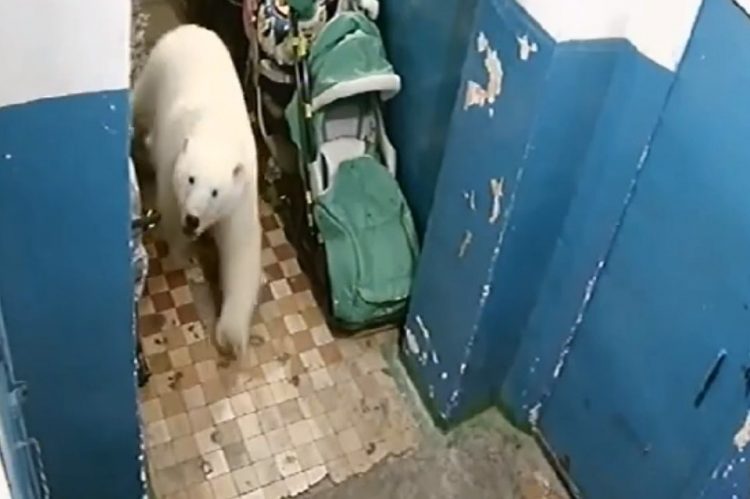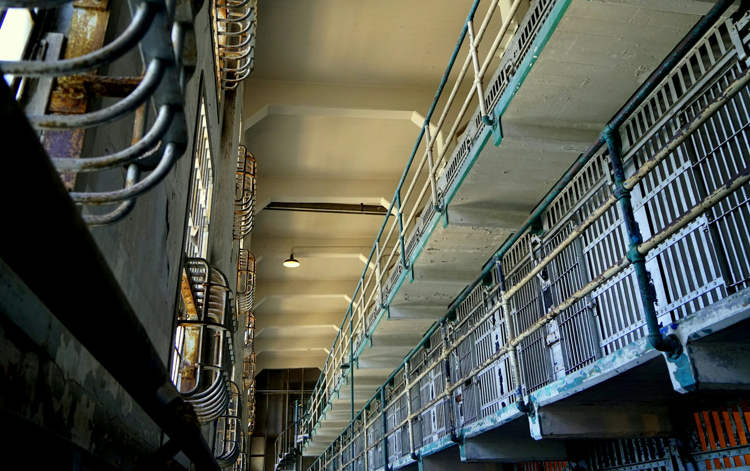The small town of Belushya Guba, in northern Russia, is in a state of emergency, with locals afraid to leave their houses because of dozens of polar bears roaming the streets in search of food.
Located on one of the two islands that make up the Novaya Zemlya archipelago in the Arctic Ocean, Belushya Guba is home to roughly 3,000 people, many of whom are terrified to leave their homes and send their kids to school, because of the dozens of bears running around in the streets and even entering buildings in search of food. While polar bear sighting aren’t exactly uncommon in the remote town, the scale of this invasion is reportedly unprecedented. Over 52 sightings have been reported in only three days, with up to 10 bears seen in the settlement at any given time.

Photo: video screengrab
“I have been in Novaya Zemlya since 1983, but there have never been so many polar bears in the vicinity,” local administrator Zhigansha Musin told Russian news agency TASS on Saturday. He added that the hungry animals had also taken over a military garrison where they “literally chase people”.
“The people are scared, they are frightened to leave homes and their daily routines are broken,” Alexander Minayev, the deputy head of Novaya Zemlya, told TASS. “Parents are afraid to let the children go to school or kindergarten.”
Polar bear activity in and around Belushya Guba started increasing in December, and the animals have reportedly become more aggressive ever since, attacking people and entering residences.
Polar bears are considered an endangered species in Russia, and despite the threat they currently pose to the people of Belushya Guba, the government has refused to issue licenses to shoot the most aggressive specimens. Instead, a team of experts and a special task force have been sent to the island to monitor the situation and protect the local population. However, killing some of the bears may be a last resort, if scare tactics prove unsuccessful. Fences and loud noises, such as gunshots and car horns have so far failed to keep the animals away.
While the reason for this polar bear invasion is still unclear, many specialists are convinced that it is linked to global warming and dwindling sea ice. Polar bears spend most of their time on ice sheets hunting for seals, but the ice recedes during warmer months, they invade inland in search of sustenance.
“It’s sort of like, you go to a restaurant and the restaurant is closed,” Andrew Derocher, a professor at the University of Alberta who studies polar bears in the Arctic, told Motherboard. “So where do you go? You keep wandering until you find one that’s open.”






